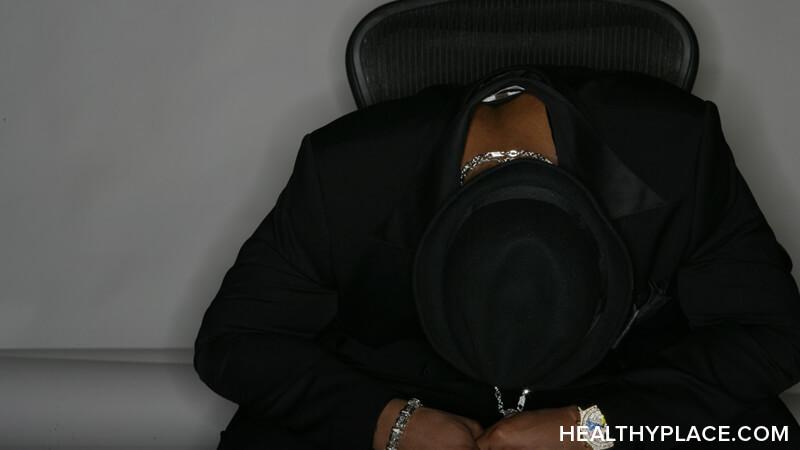Depression Is a Disability No Matter What Anyone Says

My depression is a disability. In my six years as a mental health blogger, I have often encountered people who believe that depression is temporary and those who cannot overcome it quickly are weak-willed. Despite various depression awareness campaigns, I have noticed that most people still minimize the effects and consequences of depression. These folks are so close-minded that they hang on to myths and misconceptions even in the face of cold, hard facts. It can be impossible to silence such naysayers for those of us who are living with this condition. But even if we cannot silence them, we must not internalize their misconceptions about depression and realize that depression can be a disability.
Depression Is a Disability
Depression affects everyone differently -- people with it can be high-functioning, medium-functioning, or low-functioning. It is not a stretch to say that depression is a disability. After all, Merriam-Webster defines a disability as,
"a physical, mental, cognitive, or developmental condition that impairs, interferes with, or limits a person's ability to engage in certain tasks or actions or participate in typical daily activities and interactions."1
As depression prevents one from doing certain activities as effectively as people without depression, it is a disability. While the level of disability may vary from person to person, there is no doubt that depression is a real illness that impacts people everywhere. In fact, the World Health Organization states that,
"Depression is a leading cause of disability around the world and contributes greatly to the global burden of disease. The effects of depression can be long-lasting or recurrent and can greatly affect a person's ability to function and live a rewarding life."2
Take a look at the common symptoms of depression, and I hope you will see how it prevents one from living the life they want. Depression lowers my productivity at work and prevents me from staying in touch with loved ones, which is why I identify as disabled. Doing so does not mean I see myself as a victim; it means I accept the limitations imposed by depression. And then I do what I can with what I have.
If You Are Disabled by Depression, Be Your Own Mental Health Advocate
Acceptance is crucial because it helps me adopt a realistic attitude and have a flexible work schedule. It also helps me to tune out naysayers who say ignorant things like, "It's all in your head."
The thing is, very few people are going to understand your mental health condition, let alone make the requisite accommodations to help you function. As a result, you have to advocate for yourself as a person who is disabled by depression or any other mental illness. If you don't stand up for yourself, who will get you the help you need to function to the best of your abilities? Ultimately, what matters most is that you validate your mental health struggles and live accordingly.
Thanks to the stigma around mental health and depression, it is easy to trivialize or invalidate the impact of depression. Watch the video below to know why it is crucial to be your own mental health advocate.
Sources
- Definition of disability. (2023). In Merriam-Webster Dictionary. https://www.merriam-webster.com/dictionary/disability
-
World Health Organization: WHO. (2019). Depression. www.who.int. https://www.who.int/health-topics/depression
APA Reference
Shaikh, M.
(2023, July 19). Depression Is a Disability No Matter What Anyone Says, HealthyPlace. Retrieved
on 2025, November 15 from https://www.healthyplace.com/blogs/mentalhealthforthedigitalgeneration/2023/7/depression-is-a-disability-no-matter-what-anyone-says
Author: Mahevash Shaikh
Thanks, Joseph. I am both sad and glad that this article resonated with you! Wishing you a relaxing weekend :)
Mahevash, this article is great! You put into words what many of us feel everyday. Thanks for sharing this! Awesome, awesome job! 👍 👍 👍
